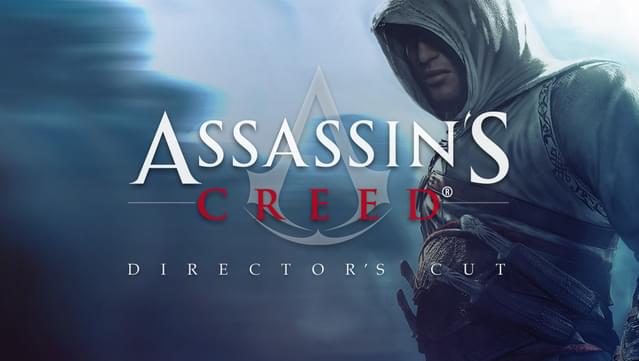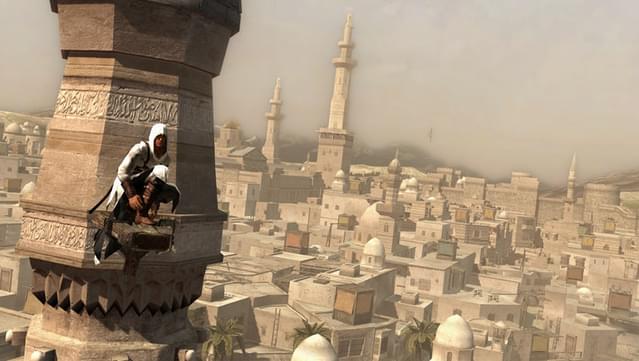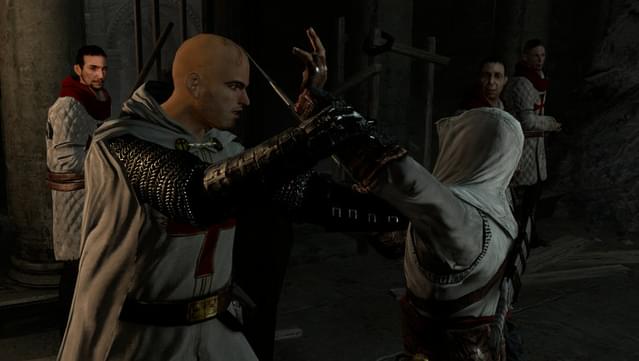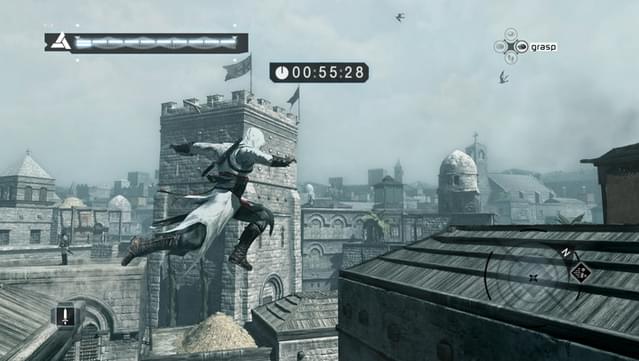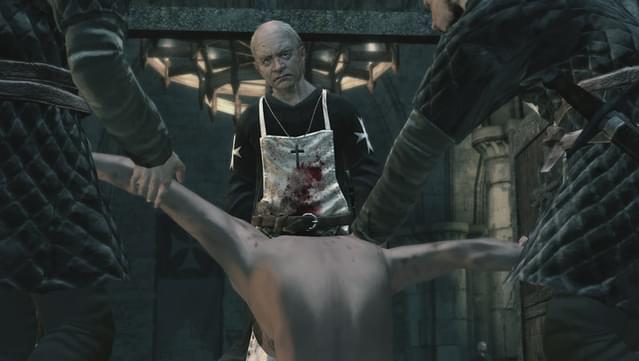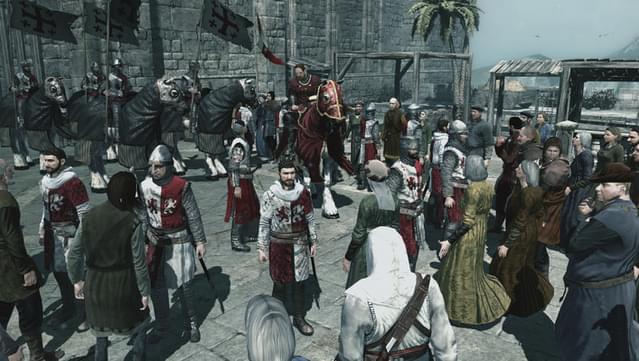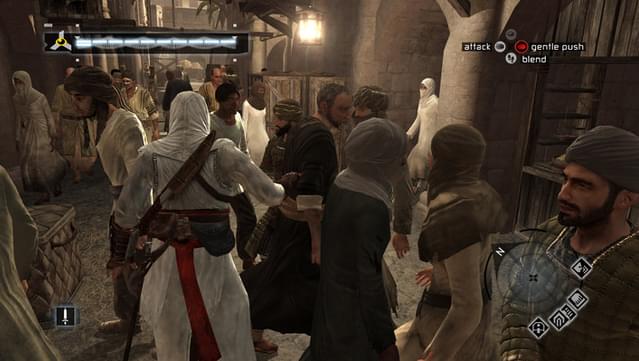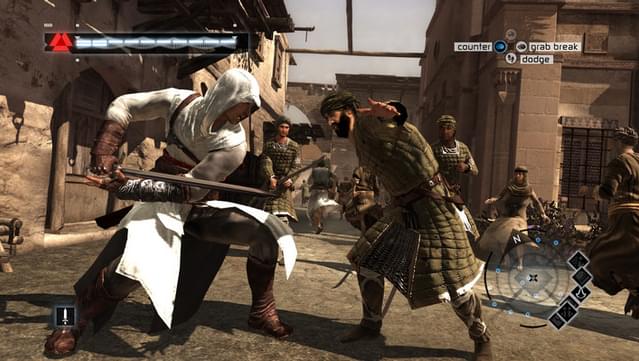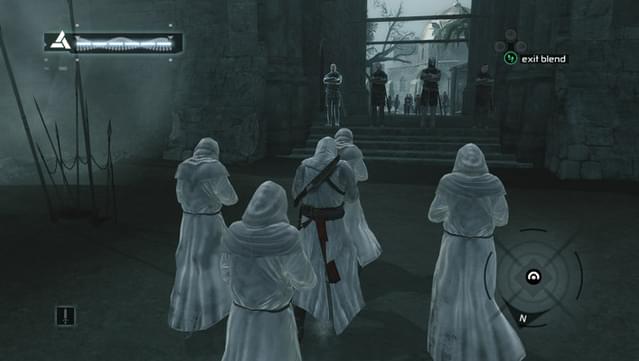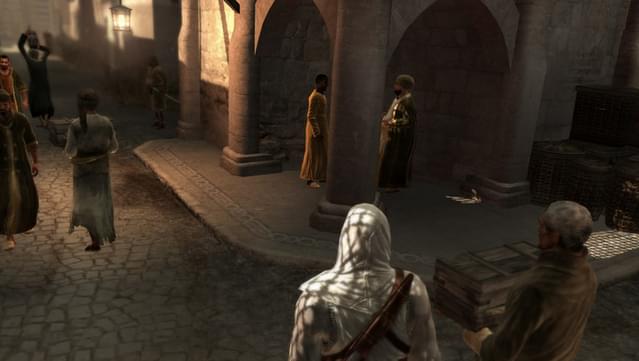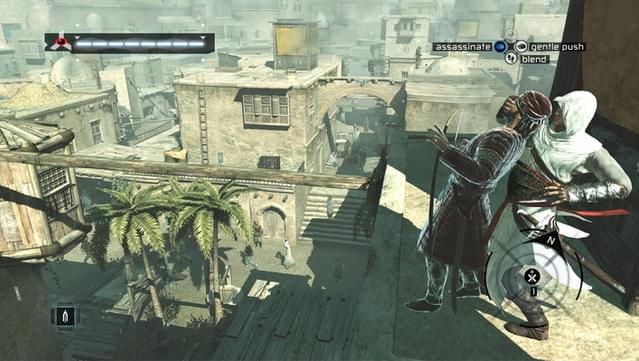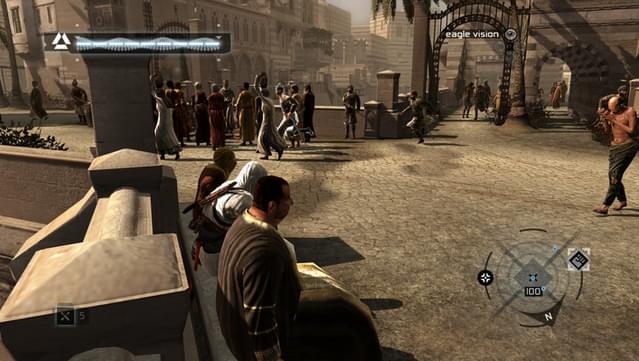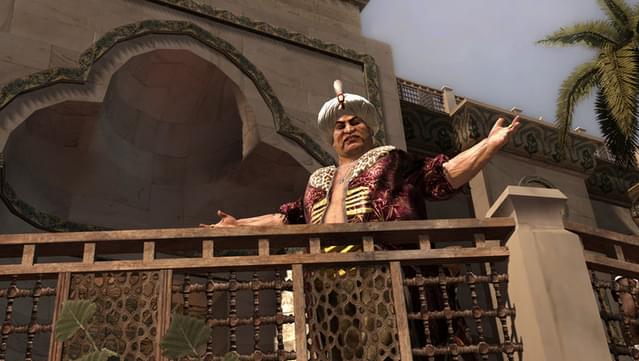Let me first say that I played this game on Xbox, so I don't know how it controls on PC. I know the PC version has more features, but I feel like games like Assassin's Creed are better suited to controllers than a mouse and keyboard. Then again, you can usually use a controller pad with a PC version of a game, so I'd recommend doing that. That being said, Assassin's Creed.
Looking back on this game, two things are clear. One, the sequel is far, far better, and the two spin-offs (Brotherhood and Revelations) also top the original in the gameplay department (as well as graphically, but that's obvious). And two, AC1 falls into that strange category of entertainment where you will either love it or hate it. The other Assassin's Creed titles manage to transcend this category and breach the realm of being exceptional titles, but the first is a bit odd. It has a lot going for it, but at the same time, it does not. Regardless, it is worth a try.
The best part about the game (and something that allows it to stand tall with its successors) is the story. You play as Desmond Miles, a normal bartender living in NYC who gets himself kidnapped by the Abstergo Corporation. See, Desmond is (or rather, was) an assassin, and descends from a long line of assassins going back who knows how far. One of those assassins was Altair, who lived during the Third Crusade and came into contact with something Abstergo is searching for. So, Abtergo uses this machine called the Animus in order to reach into Desmond's DNA and extract genetic memories of his ancestor, allowing Desmond to take on the role of Altair and "help out" Abstergo. This sends you through a series of adventures in the Third Crusade, assassinate targets, partaking in a war between Assassins and Templars, and finding out what Abstergo is searching for.
While perhaps not the best summary, the story of AC1 is very good, filled with memorable characters, sci-fi concepts, conspiracy theories, and twists and turns that you won't see coming. It also takes place in an often overlooked setting in games, and as a history buff, I appreciate the historical context of the world. I mainly said to try this game out for the story and setting because I sincerely believe it will hook you by the end and make you want to play the second game, which fixes many of the other gripes you might have with the game. Speaking of which...
It's the gameplay department that will either make or break this game for you, as it has its ups and down. First, let's start with the positives. The game is a lot like an open world Prince of Persia game. You have the same parkour running ability, allowing you to scale buildings by running up or along them, and it's incredibly fun and works quite well. Not to mention that the world isn't so big that getting around takes forever; you can use horses to get between cities (of which there are three) and can easily parkour your way across a single city in no time. The combat is also simple yet diverse and overall enjoyable, and assassinations can be approached in different ways. Much like other games, the stealthier routes are often the most challenging, but also the most satisfying when you pull them off correctly. It's also quite fun to just go around assassinating random guards, maybe fighting off 20 of them, and then quickly concealing yourself on a nearby bench. It's unrealistic, I know, but then again, so are most things in video games.
But the two major problems arise in the combat and the missions. While the combat is fun, it can also become incredibly easy. Once you get the counter move, the difficulty drops like a rock thrown off a cliff. As there were no guns in the Middle Ages, all you have to do is wait for a guard to attack with a sword, counter, and then kill them in one hit. Of course, you don't have to use counter, and the later games introduce elements that make countering less useful (like enemies with guns or enemies that can't be countered), but it's a prevalent difficulty crusher throughout the series. The combat can be challenging before this, but after you can counter, the game becomes much easier.
The main problem though is the repetitiveness in the missions. Yes, each assassination is different and involves different people, but actually getting to the assassination is the same process. First, you climb up a viewpoint to update your map and then jump off; that last part makes for quite the rush every time, but I digress. Next, you go interact with six people; this involves pickpocketing something from two people, eavesdropping on two people, and then helping out two other people. Then, you bring your information to the local Assassin's HQ before finally going after your target. And you have to go through this process nine times. It's fun the first few times, but it does get repetitive very quickly, and it's what can really drive you away from the game.
Overall, AC1 has a lot going for it. The story is great, the setting is unique and very detailed, the graphics are nice, and there are some fun elements to the gameplay. On the other hand though, combat does get way too easy and the missions do get very repetitive. But at the end of the day, I'd recommend picking this game up; it's a unique experience worth trying out and the story will suck you in. And the next few games address the main problems with AC1, adding diversity to the missions and making the combat more challenging. So pick up AC1, get a feel for the story and work past the problems, and then enjoy the hell out of AC2 and its spin-offs. Because while AC1 might be flawed genius, its successors are just genius.

